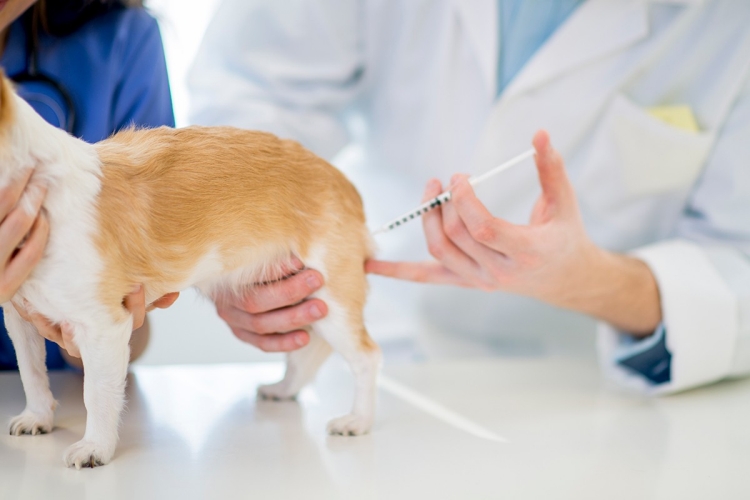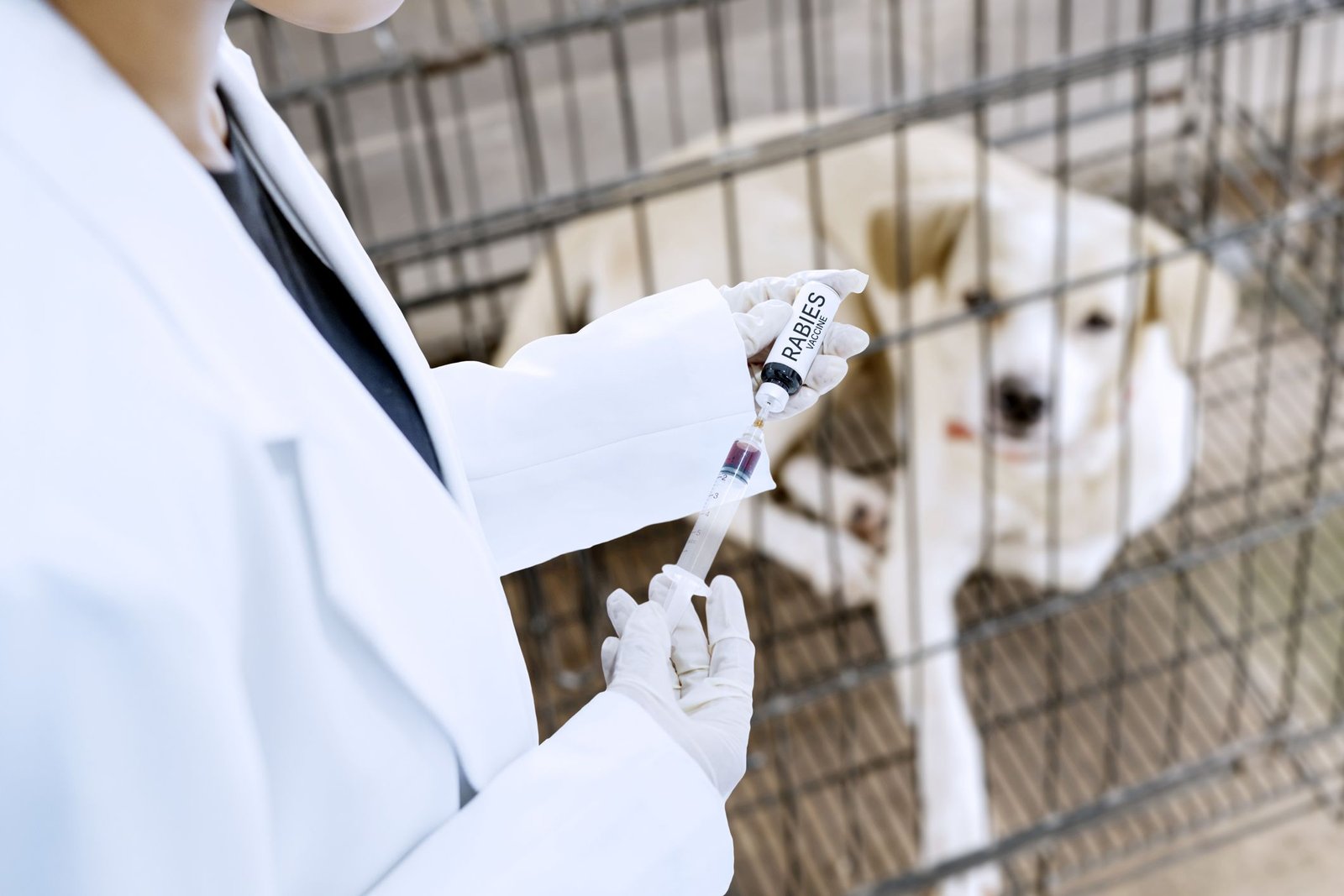The duration of immunity after a pet receives a rabies vaccination can be up to three years. In some cases, the vaccine may be labeled for one year, but certain states require annual vaccination.
It is important to check the laws regarding rabies vaccinations in your state to ensure compliance. Rabies is a fatal virus that can be transmitted through an infected animal’s bite or lick, but it can be prevented with a vaccine.
After two doses, the rabies vaccine remains effective for up to three years. Regular vaccination is crucial to protect your pet and prevent the spread of rabies.
Understanding Rabies Shots
Rabies is a dangerous and potentially deadly viral infection that affects both animals and humans. One of the most effective ways to protect pets from rabies is through vaccination. Rabies shots not only safeguard your furry companions but also prevent the transmission of the virus to humans. In this section, we will delve into how rabies shots work, the duration of immunity they provide, and the recommended vaccine schedule for your beloved pets.
How Rabies Shots Work
A rabies shot, also known as a rabies vaccine, works by stimulating an immune response in your pet’s body. The vaccine contains a small amount of the inactivated rabies virus or specific components of the virus. When administered, the vaccine prompts the immune system to recognize and produce antibodies against the virus. These antibodies help in defending the body against the rabies virus in case of exposure.
The immune response triggered by the rabies shot creates a memory within the immune system. This memory enables your pet’s body to respond rapidly and effectively in case of future encounters with the virus. It is important to note that rabies shots do not provide immediate protection. It takes some time for the immune system to build immunity after vaccination.
Duration Of Immunity
The duration of immunity provided by a rabies vaccine depends on various factors, including the type of vaccine used and the recommendations of veterinary authorities. While some vaccines are labeled for one year, others are designed to provide protection for up to three years.
According to studies, the duration of immunity to rabies in vaccinated dogs can extend beyond three years. This suggests that immunologic memory remains present even after this period. However, local regulations and state laws might still require annual or triennial vaccine boosters to maintain compliance.
Vaccine Schedule
The vaccine schedule for rabies shots typically involves an initial series of vaccinations followed by booster shots at regular intervals. The primary immunization for pets usually starts when they are around three to four months old.
After the initial vaccination, a second rabies shot is generally required one year later. This booster serves to further strengthen your pet’s immunity against the virus. Subsequently, your pet will require additional booster shots every one to three years, depending on the laws and regulations of your local jurisdiction. These booster shots help to maintain optimal protection against rabies.
It’s important to consult with your veterinarian to determine the precise vaccine schedule for your pet, as it can vary based on their age, medical history, and local regulations. Your veterinarian will keep track of your pet’s vaccination history and provide timely reminders for necessary boosters.
In conclusion, understanding how rabies shots work, the duration of immunity they offer, and the recommended vaccine schedule can help you ensure the well-being and safety of your beloved pet. By following the appropriate vaccination guidelines, you are taking a crucial step in preventing the transmission of rabies and keeping your furry friend healthy and protected.

Credit: www.facebook.com
Frequency Of Rabies Shots
Rabies is a deadly virus that can be transmitted through the bite or lick of an infected animal. To protect our pets from this dangerous disease, it is essential to ensure they receive timely rabies vaccinations. One question that often arises is: how often do pets need rabies shots? The frequency of rabies shots depends on various factors, including state requirements and the type of vaccine used.
Every Three Years
Many rabies vaccines on the market are licensed for a duration of three years. This means that after receiving the initial rabies vaccination, your pet will typically need a booster shot every three years to maintain protection against the virus. The three-year duration of immunity offered by these vaccines provides peace of mind to pet owners, as they can rest assured that their furry friends are well-guarded against this deadly disease for a substantial period of time.
State Requirements
While some states adhere to the three-year rabies vaccination schedule, others may have different requirements. It is important to familiarize yourself with the regulations in your state regarding rabies shots for pets. Certain states may mandate annual vaccinations, while others may accept the three-year booster schedule. By staying informed about your state’s requirements, you can ensure that your pet is in compliance with the law while receiving appropriate protection against rabies.
These state requirements serve a crucial purpose in safeguarding not only individual animals but also the overall population. Rabies is a zoonotic disease, meaning it can be transmitted from animals to humans. By ensuring that all pets are up-to-date on their rabies vaccinations, we can help prevent the spread of the virus and protect the health and safety of both animals and humans.
Longevity Of Rabies Vaccines
One of the most important steps in keeping our pets safe from rabies is ensuring they receive regular rabies vaccinations. These vaccinations not only protect our furry friends from a potentially fatal virus but also help prevent the spread of rabies to humans and other animals. When it comes to the longevity of rabies vaccines, there are two options: one year and three years.
One Year
Some rabies vaccinations are licensed for a duration of one year. This means that after receiving the initial rabies shot, your pet will need to be revaccinated every year to maintain protection against the virus. The one-year vaccine is commonly recommended for young animals, as they may require additional boosters to establish long-term immunity. Additionally, certain states may have regulations that mandate annual rabies vaccinations for all pets.
Three Years
On the other hand, there are rabies vaccinations labeled for a duration of three years. These vaccines provide extended protection, allowing your pet to remain vaccinated against rabies for a longer period before requiring a booster shot. The three-year vaccine is often preferred for adult pets who have already established a baseline level of immunity. However, it’s important to note that even with a three-year vaccine, some states may still require annual rabies vaccinations.
Vaccine Manufacturer And State Laws
The longevity of rabies vaccines can also depend on the manufacturer and the laws of your state. Different vaccine manufacturers may have variations in the duration of immunity provided by their products. It’s essential to consult with your veterinarian to determine which vaccine is best suited for your pet’s specific needs.
In addition, state laws play a significant role in determining the frequency of rabies vaccinations. Some states may enforce annual vaccinations for all pets, regardless of the vaccine’s recommended duration. It’s crucial to familiarize yourself with the regulations in your area and ensure compliance to protect your pet and maintain legal requirements.
Regular rabies vaccinations are crucial for the health and safety of our pets and the community. Whether it’s a one-year or three-year vaccine, ensuring your furry companion is up to date on their shots will provide them with the necessary protection against this deadly virus. Consult with your veterinarian to determine the appropriate vaccine and vaccination schedule for your pet based on their age, health, and local regulations.

Credit: www.sddac.com
Side Effects And Risks
Rabies shots are crucial for the health and safety of pets. However, it’s important to be aware of the potential side effects and risks associated with these vaccinations. While rare, side effects can occur, especially at the injection site. It’s essential to recognize these side effects so that you can promptly seek veterinary care if necessary. In this section, we will discuss two common side effects that may arise after pet rabies shots: Injection Site Reactions and Persistent Swelling.
Injection Site Reactions
After receiving a rabies shot, some pets may experience injection site reactions. These reactions are typically mild and resolve on their own within a few days. However, in rare cases, more significant symptoms might occur. These reactions may include:
- Redness or swelling around the injection site
- Pain or discomfort at the site of injection
- Formation of a small lump or bump under the skin
If your pet experiences any of these symptoms, it is usually nothing to be alarmed about. However, it is essential to monitor the injection site and contact your veterinarian if the symptoms worsen or persist for more than a few days.
Persistent Swelling
In some cases, pets may develop persistent swelling at the injection site, which can last for several weeks. While this side effect is uncommon, it’s crucial to address it if it occurs. If you notice persistent swelling, or if the swelling worsens or seems to be causing your pet discomfort, it is essential to consult your veterinarian. They can evaluate the swelling and determine the best course of action, which may include additional treatment or monitoring.
Remember, side effects from pet rabies shots are rare, but it’s always better to be vigilant. By being aware of the potential side effects and risks, you can ensure your pet’s well-being and promptly seek veterinary care if needed. Your veterinarian is the best source of guidance when it comes to managing and addressing any concerns related to rabies vaccinations.
Considering The Best Option
Pet rabies shots are essential for preventing the transmission of this fatal virus. While some shots last for one year, others can offer protection for up to three years, depending on the state requirements and the vaccine used. It is important to follow the recommended vaccination schedule to ensure the safety and well-being of your pet.
Choosing the right pet rabies shot option is an important decision that every pet owner should consider. Rabies is a serious and potentially fatal virus that can be transmitted through the bite or saliva of an infected animal. Vaccinating your pet is the best way to protect them from this deadly disease. However, when it comes to deciding between a one-year or three-year rabies shot, there are a few factors to consider. Consulting with your veterinarian and understanding the benefits and duration of each option can help you make an informed decision.Consulting Your Veterinarian
Before making a decision about the type of rabies shot for your pet, it’s essential to consult with your veterinarian. They are experts in pet health and can provide you with the best advice based on your pet’s individual needs. Your veterinarian will consider factors such as your pet’s age, health history, and lifestyle to determine the most suitable vaccination schedule. They will also inform you about any legal requirements for rabies vaccination in your area. By having a discussion with your veterinarian, you can better understand the benefits and potential risks associated with each vaccination option.Choosing Between One Year And Three Years
When it comes to the duration of protection, some rabies vaccines are labeled for one year, while others are labeled for three years. The choice between these two options may depend on various factors, including legal requirements and your pet’s overall health. It’s important to note that the duration of immunity after vaccination can vary among individual animals. While some pets may have a strong immune response that lasts for three years, others may require more frequent vaccinations to maintain protection. Your veterinarian will assess your pet’s individual needs and recommend the most appropriate vaccination schedule for their health and safety. To summarize, when considering the best option for your pet’s rabies vaccination, it is crucial to consult with your veterinarian. They will provide expert guidance based on your pet’s unique needs, legal requirements, and the benefits and duration of each vaccination option. By making an informed decision, you can ensure that your pet is protected from rabies, a potentially deadly virus. Remember, the health and safety of your furry friend should always be a top priority.:strip_icc()/how-long-are-rabies-shots-good-3385625_FINAL-b3b90b78675e4a9ca4102b405fecf74c.jpg)
Credit: www.thesprucepets.com
Frequently Asked Questions For Pet Rabies Shots And How Long They Last
How Long Does An Animal Rabies Vaccine Last?
The animal rabies vaccine can last for up to three years after two doses. Vaccination should be followed by a booster schedule every three years.
How Often Do Pets Get Rabies Shots?
Pets should receive rabies shots every year after the initial immunization, followed by a three-year booster schedule.
What Is The Difference Between The 1 Year And 3 Year Rabies Vaccine For Dogs?
The 1-year and 3-year rabies vaccines for dogs have different durations of immunity. The 1-year vaccine provides protection for one year, while the 3-year vaccine offers protection for up to three years. It is important to follow the appropriate booster schedule for each vaccine type.
How Long Is Rabies Vaccination Effective?
The rabies vaccine is effective for up to three years after two doses. It is crucial in preventing the transmission of the fatal rabies virus through bites or licks from infected animals.
Conclusion
It is crucial for pet owners to understand the duration of effectiveness for rabies shots. While some vaccinations are licensed for one year, others can last up to three years. However, it is important to check the laws in your state and follow the recommended booster schedule.
By ensuring that our furry friends are up-to-date with their rabies vaccinations, we can protect them from this deadly virus and promote their overall health and well-being.

